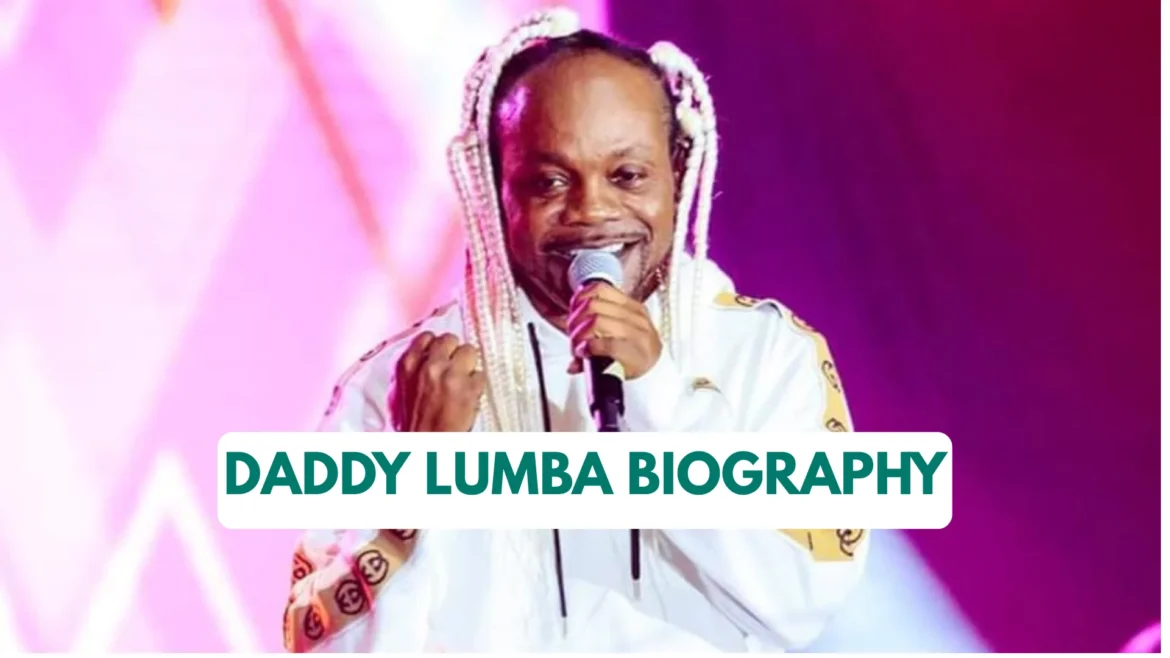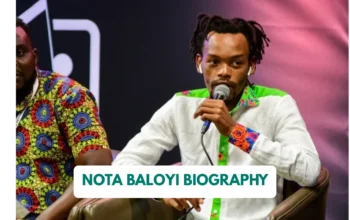Daddy Lumba — born Charles Kwadwo Fosu — is widely celebrated as one of Ghana’s most enduring and influential highlife musicians.
Over a career spanning decades, he shaped the sound of modern highlife with memorable melodies, rich storytelling, and a voice that connected across generations.
This biography traces his early life, rise to fame, signature songs, controversies, awards, and the legacy he leaves behind.
Bio Data
- Full Name: Charles Kwadwo Fosu
- Stage Name: Daddy Lumba
- Born: 29 September 1964
- Age (at death): 60 years
- Death: 26 July 2025 (in Accra, Ghana)
- Birthplace: Nsuta (near Mampong), Ashanti Region, Ghana
- Nationality: Ghanaian
- Occupation: Musician, singer, songwriter, record producer entrepreneur
- Parents: Father: Johnson Kwadwo Fosuh (also cited as Owoahene Kwadwo Fosuh) Mother: Comfort Gyamfi (Ama Saah)
- Siblings: He was the second of three children.
- Spouse(s): Formerly married to Akosua Serwaa; at the time of death reportedly partnered with Priscilla Ofori-Atta (sometimes named “Maame Broni” in media).
- Children: Multiple children; some sources say 7 children (4 with first wife, 3 with second wife)
- Net Worth: Estimates vary — some publications mention about US $16 million.
Early life and background
Charles Kwadwo Fosu was born on 29 September 1964 in Nsuta, in the Ashanti Region of Ghana. He grew up in a family of teachers and developed an early love for music. While at Juaben Senior High School he led the school choir and began composing and performing, activities that set the stage for his future career.
The move to Germany & formation of The Lumba Brothers
In the 1980s Lumba moved to Germany, where he met fellow Ghanaian musician Nana Acheampong. Together they formed the Lumba Brothers, a duo that blended traditional Ghanaian highlife with the European-based “Burger Highlife” sound that was developing among Ghanaian migrants. The duo’s recordings earned them recognition both among the diaspora and at home in Ghana.
Solo breakthrough and musical career
After the Lumba Brothers disbanded in the early 1990s, Daddy Lumba launched a prolific solo career. He released a steady stream of albums that mixed highlife, soul, and modern production. His songwriting ranged from romantic ballads to socially reflective songs; many of his singles became staples at Ghanaian events and on radio playlists. Across his career he released dozens of albums and hundreds of songs that solidified his place in Ghanaian music.
Signature songs and style
Daddy Lumba’s music is known for its emotional directness and melodic craft. Songs like the Lumba Brothers’ hits and his solo tracks (often sung in Twi with some English and occasional other languages) combined traditional highlife rhythms with new instrumentation and arrangement choices. His ability to write about love, family, hardship, gratitude, and everyday life made his music widely relatable.
Collaborations, mentorship & influence
Beyond his own recordings, Daddy Lumba nurtured and influenced many younger Ghanaian artists. He produced and helped launch careers for musicians in Ghana’s contemporary music scene, contributing to highlife’s continued evolution and crossover into hiplife and Afrobeats-influenced styles. Contemporary stars often cite him as an influence and a builder of the modern Ghanaian sound.
Awards, recognitions & milestones
Daddy Lumba received multiple awards across his career, including wins at the Ghana Music Awards and lifetime/legend honors later in life. He was celebrated for both commercial success and artistic impact, receiving recognition at events honoring Ghanaian musical heritage and internationally-focused awards that acknowledged his role spreading highlife beyond Ghana.
Personal life
Lumba’s personal life included family ties in Ghana and Germany. He was married and had children; his family life and relationships sometimes featured in media coverage and interviews over the years. Like many public artists, his private affairs occasionally intersected with public controversies and legal matters, but none diminished his musical reputation in the eyes of many fans.
Later years & legacy
In later years Daddy Lumba remained relevant — receiving lifetime awards and seeing his music included on international playlists. His catalogue continues to be streamed and celebrated by older and younger listeners alike. Whether through direct mentorship or the continued popularity of his songs, his influence on Ghanaian music is firmly established.
FAQs
Q1: What is Daddy Lumba’s birth name?
A1: Daddy Lumba’s birth name is Charles Kwadwo Fosu.}
Q2: When and where was Daddy Lumba born?
A2: He was born on 29 September 1964 in Nsuta, Ashanti Region, Ghana.
Q3: Which group did Daddy Lumba first become famous with?
A3: He initially rose to prominence as one half of the Lumba Brothers with Nana Acheampong while living in Germany.
Q4: What are some of Daddy Lumba’s most famous songs?
A4: He is known for numerous hits spanning solo and duo work; many of his tracks are considered Ghanaian highlife classics.
Q5: How has Daddy Lumba influenced modern Ghanaian music?
A5: Daddy Lumba influenced production choices, songwriting approaches, mentorship pathways, and helped bridge traditional highlife with contemporary sounds — inspiring multiple generations of Ghanaian artists.
Conclusion
Daddy Lumba’s story is one of talent, adaptability, and cultural resonance. From school choirs in Ashanti to highlife stages at home and abroad, his music gave voice to love, pain, joy, and daily life in Ghana. His influence continues in the artists he inspired and the songs that remain part of Ghana’s musical memory. For anyone exploring modern highlife, Daddy Lumba’s catalogue is essential listening — a richly textured musical journey that captures the heart of Ghana’s popular music.




